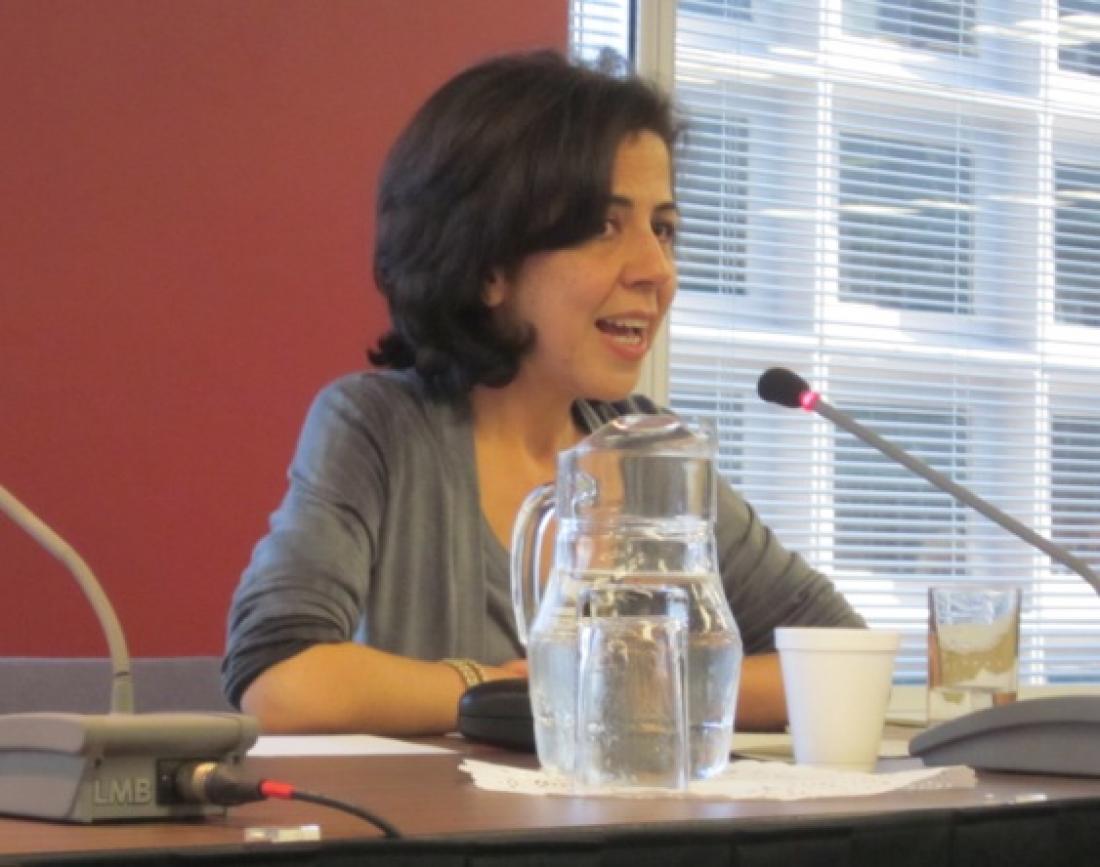Dr Shahra Razavi
Written by KRISTEN NELSON
A senior research coordinator at the United Nations Research Institute for Social Development (UNRISD), Razavi specializes in the gender dimensions of social development, focusing particularly on livelihoods and social policy. UNRISD has been a long-time partner of IDRC’s on research.
Razavi’s talk, Gender Equality: at Home and in the Market, highlighted the interplay between gender struggles and economic understanding.
Public and private spheres
Razavi identified the private sphere – the home and the personal relationships housed within it as the historical battleground for equality. The private sphere involves raising children, caring for elders, employment, and household wealth.
The public sphere covers the working world of markets outside of the home, as well as social policy. According to Razavi, some economists propose that the markets are an answer to gender inequality.
Razavi stated that inequality is not just present in the private sphere, but also within the public domain and its institutions. And she cautioned that “these are very much problems that are not just out there in the developing world, but also in our own micro institutions of family and household, here in our very developed economy in the North.”
Growth, but not equality
Citing East Asia’s example, Razavi argued that despite the economic advances of many of the countries in the region and the entry of women into the workforce, inequality persists.
At first glance, countries in the region appear to be making strides toward equality. Women entered factories in towns and left their patriarchal rural homes. Their wages allowed them to add to their household wealth. The flood of female labourers allowed the markets to be globally competitive.
But, she said, significant gaps remain between what women earn and what men earn. It becomes clear, she said, that the country is only able to grow out of a poor agrarian economy to a place of market strength by underpaying its women workers.
Razavi remarked that these economies should not be idealized, because, “in effect, gender inequality was built into this development model.”
The growing “care” sector
Razavi also drew on UNRISD’s research, co-funded by IDRC that looks at the “care” economy. This issue of care, where women usually shoulder the responsibility of managing the physical and emotional needs of household members, extended family, and even communities, has long been studied in developed countries and advanced welfare states. Razavi said it is now a policy issue for developing countries.
In addition to earning a wage, women are still the primary caregivers in their homes. If a child or elderly parent is sick, they are the ones who leave work and care for them. As Razavi says, “Women put in fewer hours of paid work, but that’s because they have other responsibilities, unpaid responsibilities, which constrains them from putting in equal hours as men. This, in effect, translates into lower wages and lower earnings.”
UNRISD’s research is looking at care work within households, as well as its shift into the labour sector, whether in formal settings such as hospitals or informal situations, such as providing care services in other households.
Razavi called for more public oversight into the caregiving sector, to ensure that the quality of care giving work and of women’s working conditions are protected. As Razavi says, “We think that makes for better societies, for better households, for better families.”
Kristen Nelson is an Ottawa-based writer.



